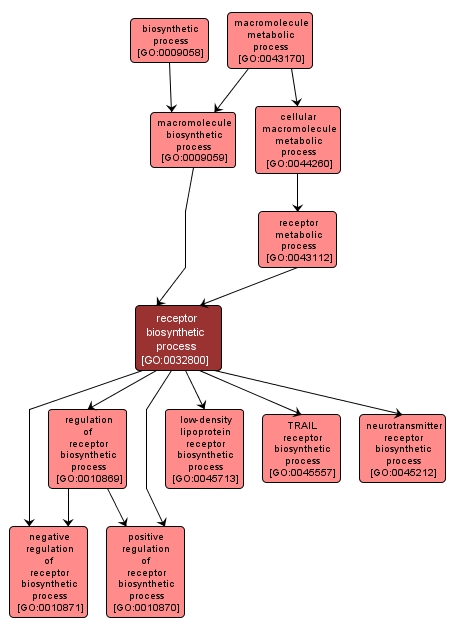GO TERM SUMMARY
|
| Name: |
receptor biosynthetic process |
| Acc: |
GO:0032800 |
| Aspect: |
Biological Process |
| Desc: |
The chemical reactions and pathways resulting in the formation of a receptor molecule, a macromolecule that undergoes combination with a hormone, neurotransmitter, drug or intracellular messenger to initiate a change in cell function. |
Synonyms:
- receptor biosynthesis
- receptor anabolism
- receptor synthesis
- receptor formation
|
|

|
INTERACTIVE GO GRAPH
|














